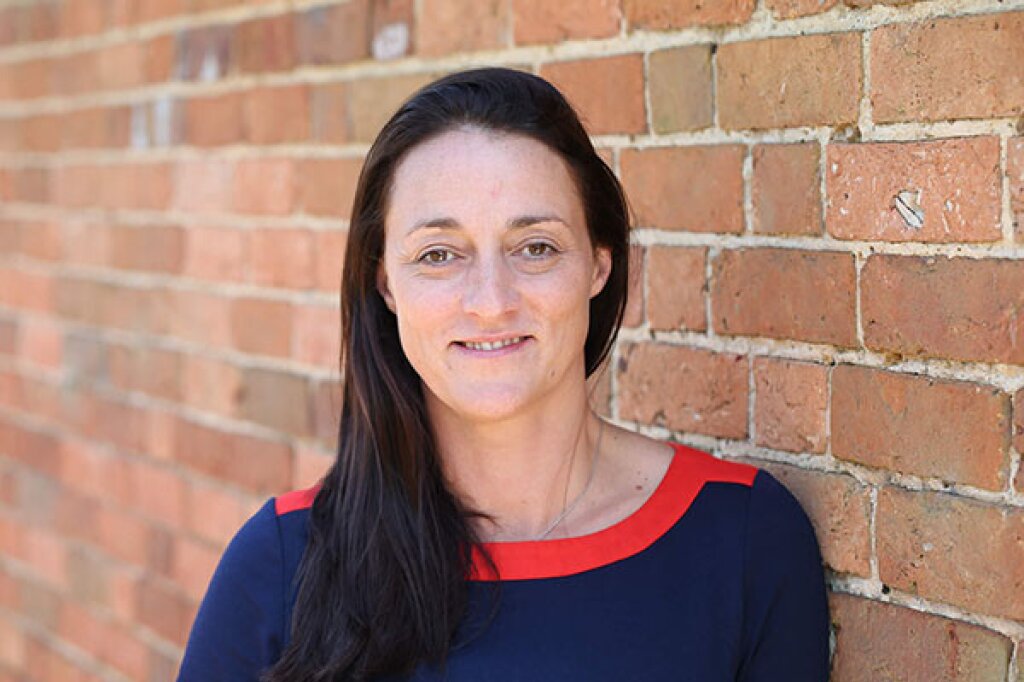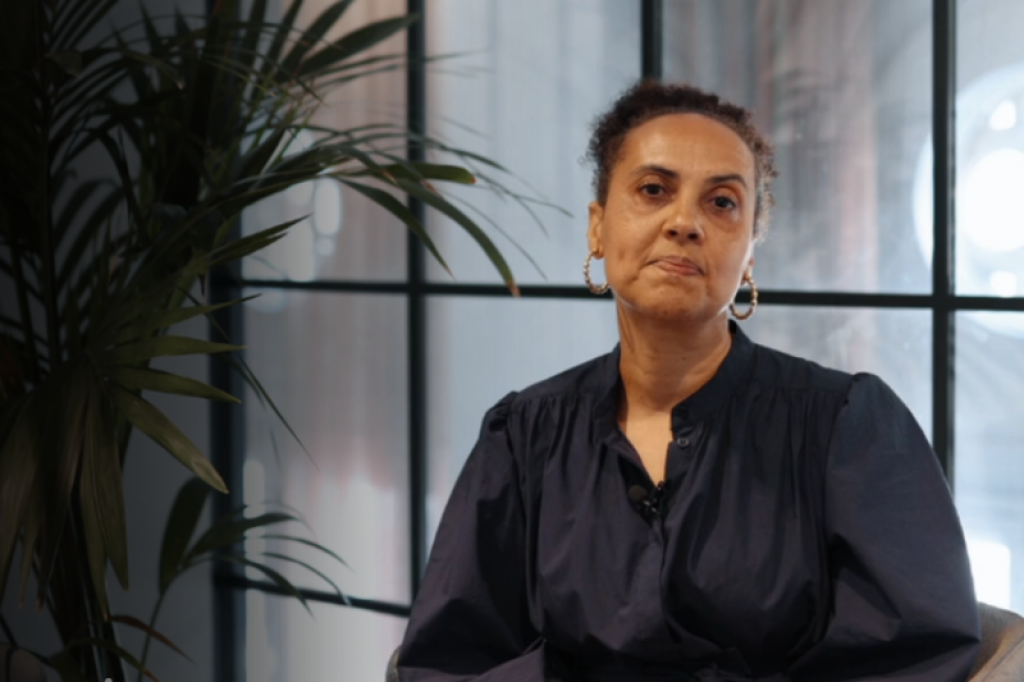Stream Loyalty has specialised in loyalty software for B2B businesses for 15 years. Its three directors were on the brink of a huge pivot from service-led business to a SaaS model when they heard about Be the Business.
We’re following their journey with The Productivity Programme for six months, and will keep this page updated with their progress.
“The last two years have been about building a product, and moving away from consulting and building big enterprise solutions. That’s been a big mindset shift for us, to move away from ‘whatever you want, we can do’ to ‘here’s the product and this is what it does’,” explained co-founder Melanie Parker.
With just three people on the management team, Stream was struggling to prioritise and thought that external expertise could help. But, everyone they had approached about a non-executive director role wanted equity in return, which the business wasn’t ready to give.
So, when they heard about Be the Business from the Mayor of Aylesbury, who happens to be one of our team members, Melanie got in touch – and she’s been “really impressed at the level of experience and quality of the board that we’ve got”.
Creating the time to make an impact
On the first call with their board, Melanie and the other directors gave an overview of the business and what they wanted to tackle, with the directors’ workloads at the top of the agenda.
“They gave us some really good advice on how to structure our roles, how much time we should be spending on different parts, and some things we were doing that were very nice, but that we didn’t need to do at the size we were,” she said.
Stream and their board examined every task the directors did and decided whether it was necessary for running the business or contributing to increased sales – if not, it wasn’t a good use of directors’ time.
For Melanie’s role, the advice led to hiring a freelance compliance officer. Using that freelance resource meant that she got back 15-20 per cent of her time, and Stream’s compliance improved thanks to that person’s specialist knowledge and experience.
Developing more targeted marketing
Stream’s board also identified that the company needed help with executing more targeted marketing.
“They asked us who we were targeting, and we spoke about sectors. Then they asked who specifically, and we said those sectors again! So they asked us to create a list of at least 100 companies, and rank them from one to five based on the size of the opportunity and whether they were warm prospects already. And then you’ve got a list that you can take out and do really targeted marketing,” Melanie explained.
Melanie concluded that the most surprising thing for Stream has been the quality of the people on their board.
“We’ve got four really high-calibre people on the board, who are really willing to give us time. They’ve sat through product demos, sent through things that might be useful, read documents that we’ve sent them.
“They've been very complimentary as well as suggesting we could refine this or try that. They all have really different skills… there is just a really high level of knowledge and experience that we wouldn’t have got any other way.”
Focusing on business growth
Stream Loyalty’s second board meeting offered a chance to check in on the discussion points from last time.
“We revisited the discussion about our roles in the business, and recognising that there needs to be more working on the business than working in the business, because we’re all very hands-on,” co-founder Mark Maclure explained.
“I’m responsible for sales with no other resource, and we talked about getting a salesperson. I’ve always thought, ‘who can sell the business better than us, given that we live and breathe it?’ But we have pivoted from a service business to software-as-a-service, and I’ve had to do things differently. And the fact is, there is a salesperson out there who could take on the process elements of sales and allow me to do more top-level things.”
Mark added that it was important to “bite the bullet” and make an investment which might take time to pay off because it’s going to be difficult to scale without the sales resources.
Codifying the sales process has set Stream up for hiring. “We’re walking people through the process and refining it, and it has been useful to recognise that documenting that is going to help us to know our expectations of a salesperson and what they should be able to deliver,” Mark said.
He concluded by saying that the programme is working well for Stream Loyalty. “This whole exercise has been really useful for us to try out what we need: do we need a board long-term, and the rigour of a quarterly meeting? It’s probably made us realise that we do need some form of external non-exec that we meet with regularly,” Mark said.
He continued, “I would definitely advocate trying it. It’s extremely healthy to have someone to be accountable to, to be a fresh set of eyes and ears, and to deliver their expertise in areas you don’t have. All those three make it a pretty powerful reason to try it out.”
Making a hiring decision
In Stream’s subsequent board meetings, the decision to hire was finalised.
“The board pushed us to decide to actually hire someone, because we’ve been going round in circles about it for two years. We brought it up in the first board meeting, then again after that, and the board identified that it kept coming up as an issue but we weren’t doing something about it,” Melanie recalled.
“Of course, the board programme is about us coming up with the answers ourselves. So they asked us questions about what we felt was missing and what sort of person we would want to hire, and we were able to conclude that we wanted someone process-driven who wouldn’t just generate sales leads but also oversee the follow-up process.”
Fostering a team mentality
A significant change that came out of the board meetings was how the directors at Stream Loyalty communicate with their teams.
“We now make sure to communicate things to the entire team and follow up with written communication, so nothing gets missed. It’s helped us be clear on what we expect people to deliver, and clearly set targets and deliverables,” Melanie explained.
This new approach has already generated tangible results in the business.
“We’ve put in place lots of efficiencies in the development team, and there’s more of a team mentality to completing sprints now – it’s about what the team needs to achieve, not just individuals. We check in on project progress every week, people are offering to pick up others’ work, and they’re all feeling good about their jobs which is great,” Melanie said.
The directors will now aim to foster this same mentality among the sales team.
“Our task after our last board meeting is to revisit all leads from the past 18 months and requalify them. We need to have a realistic, not optimistic, sales pipeline and make sure we’re prioritising the right prospects. Looking at these leads and picking up on trends will help us accurately predict the next 18 months.”
A new approach to management
Melanie explained that the board’s way of working was so effective that Stream has implemented it permanently.
“What Be the Business showed us was that with shorter board meetings, we didn’t have hundreds of actions coming out of them. Instead it was a handful of smaller actions which meant things got done. We’ve agreed to keep two-hour board meetings going forward instead of all-day ones, and make them more frequent to make things easier,” she said.
It’s this accountability that led Melanie and the other directors to continue working with their board members after their time on The Productivity Programme ended.
“It’s too easy to get in the weeds and never step back when you’re running a business. We’ve had quarterly meetings in the past but might have taken a month to write up the actions. With board members, someone is expecting the minutes two days after the meeting, so we make sure we do it. We feel the two people we’ve continued working with are really suited to our eventual goals,” she explained.
Stream Loyalty has now completed The Productivity Programme. We’ll be following the business’ progress after the programme, so stay tuned for updates.
Be the Business can connect you with an advisory board of four experienced business professionals, for six months of personalised business support – find out more here.



